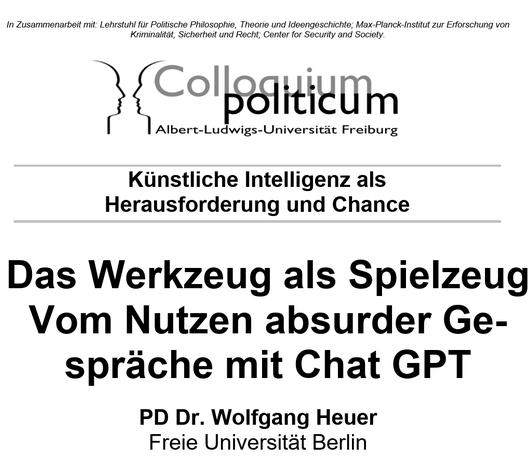
Algorithmic Security and Human Autonomy
The core of human autonomy (understood as making self-determined decisions and acting accordingly) is increasingly being complemented, supported, or replaced by automated decision-making (ADM) processes. In civil security, this has led to the emergence of “algorithmic” and “preventive” security. Recent examples at the EU level include the Passenger Name Record (PNR) Directive, and the European Travel Information and Authorization System (ETIAS) Regulation. Compared to reactive and preventive approaches, algorithmic security aims to avoid specific criminal acts by assessing future behaviour probabilistically. While existing jurisprudence and scholarship on this security model acknowledges challenges to established rule of law principles and calls for greater alignment with normative standards, deeper questions are rarely addressed, such as how this security model changes how people are conceived as addressees of legal norms, and modifies normative concepts that serve as benchmarks for evaluating security practices. This project accordingly aims to: (1) clarify the main features of the current trend toward algorithmic security in law and practice; (2) explore its implications for the relationship between law and its addressees; and (3) determine the contributions that autonomy concepts can make to providing a suitable normative backdrop. Particular attention will be paid to conceptions of autonomy that go beyond self-legislation and self-determination, including its relational and social dimensions. By focusing on fundamental philosophical concepts, this project not only contributes to the first axis of the Department of Public Law’s topical matrix, but also explores the nature and implications of contemporary digitalization trends in security law. Bridging the disciplines of legal and political philosophy, this project relies mainly on (historically contextualized) conceptual analysis and normative critique. As behavioural profiling practices are not limited to the security sector—but permeate technologically-mediated social life and our digital economy more broadly—its research outcomes resonate well beyond the field of public security law.
| Research outcome: | peer-reviewed journal articles (2023–2024) |
|---|---|
| Research focus: | 1. Fundamentals: Theoretical Foundations and Doctrinal Structures |
| Project language: | English |
| Picture: | © Pietro Jeng/Unsplash |
Key publications
Public lecture series (co-organizer)
“Artificial Intelligence as a Challenge and a Chance”, Freiburg University, January 2024–January 2025.
Overview • Freiburg University
Selection:











